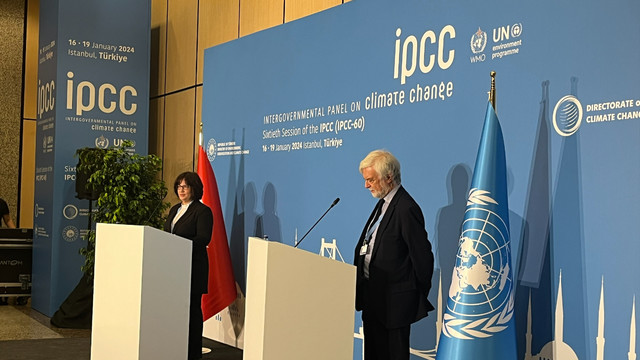Least Developed Countries create pressure for climate shift
As climate talks in Paris move into the final hours, the Least Developed Countries are fighting for their right for support and protection, and more and more countries are recognising the need to limit global warming to 1.5 degrees.

Gaspar Martins sits alongside representatives of the Marshall Islands, United States, Germany, Norway and others as part of the "High Ambition Coalition" (Image: Matt Wright/IIED)
As climate talks in Paris shift into the final end game, some of the world's poorest countries are battling to keep their issues high on the global agenda.
The world's Least Developed Countries (LDCs) negotiate as a group within the UN Framework Convention on Climate Change (UNFCCC) talks, and while their small team of negotiators may be stretched to cover all the issues as the talks move into their final stages, they are keeping the key issues on the table.
Support is growing to include a 1.5 degree limit to global temperature rise in the text – one of the group's key demands – and discussions are still ongoing on including 'loss and damage' – how the new agreement will address losses (such as lost land) as a result of climate change.
The chair of the LDC Group, Giza Gaspar-Martins of Angola, said the latest version of the text was a good basis, but there was still lots of work to be done to ensure an ambitious agreement.
"We maintain our position in the high-level negotiations, working hard alongside the ministers to ensure the agreement reflects the special needs and specific situations of the LDCs," he said.
The LDCs are given special recognition under article 4.9 of the convention particularly with regard to funding and the need for support with access to technology.
But they also face specific challenges within the negotiations – with fewer people on delegations and, as a result, fewer experts to push their demands in negotiations.
In Paris, work has been moving forward under a number of different themes, with key LDC Group issues cropping up in most of the discussions. The group looking at ambition, for example, includes the issue of the target, while "implementation mechanisms" covers financing, technologies and capacities.
And while some of the key meetings take place with all parties around the table, there have also been numerous bilaterals, bringing together individual states, or states and group representatives to discuss particular points. On Monday a number of delegations raised concerns about the transparency of the process, and the smaller delegations are inevitably over-stretched.
The chair explained: "The process itself is currently a barrier to achieving the progress we need for the countries we represent. For example too many simultaneous meetings mean we have little opportunity to fully represent our issues in these vital discussions."

One answer is to form alliances, and the LDC Group has been one of the active players in building a new loose-based coalition, bringing together countries who want to see a more ambitious deal here in Paris. The United States is involved – and came up with the "High Ambition Coalition” name.
The LDC Group also works with – and is a part of – the much larger G77 Group, which negotiates as the G77 plus China, potentially making them part of a much more powerful block. But keeping LDC priorities on the agenda within the larger group can also be challenging.
As the negotiations move into the final stages, all of the countries at the talks will come under pressure to compromise. The LDC Group chair is optimistic that there will be a deal – and determined to fight to make sure the Least Developed Countries are not the losers this time.



